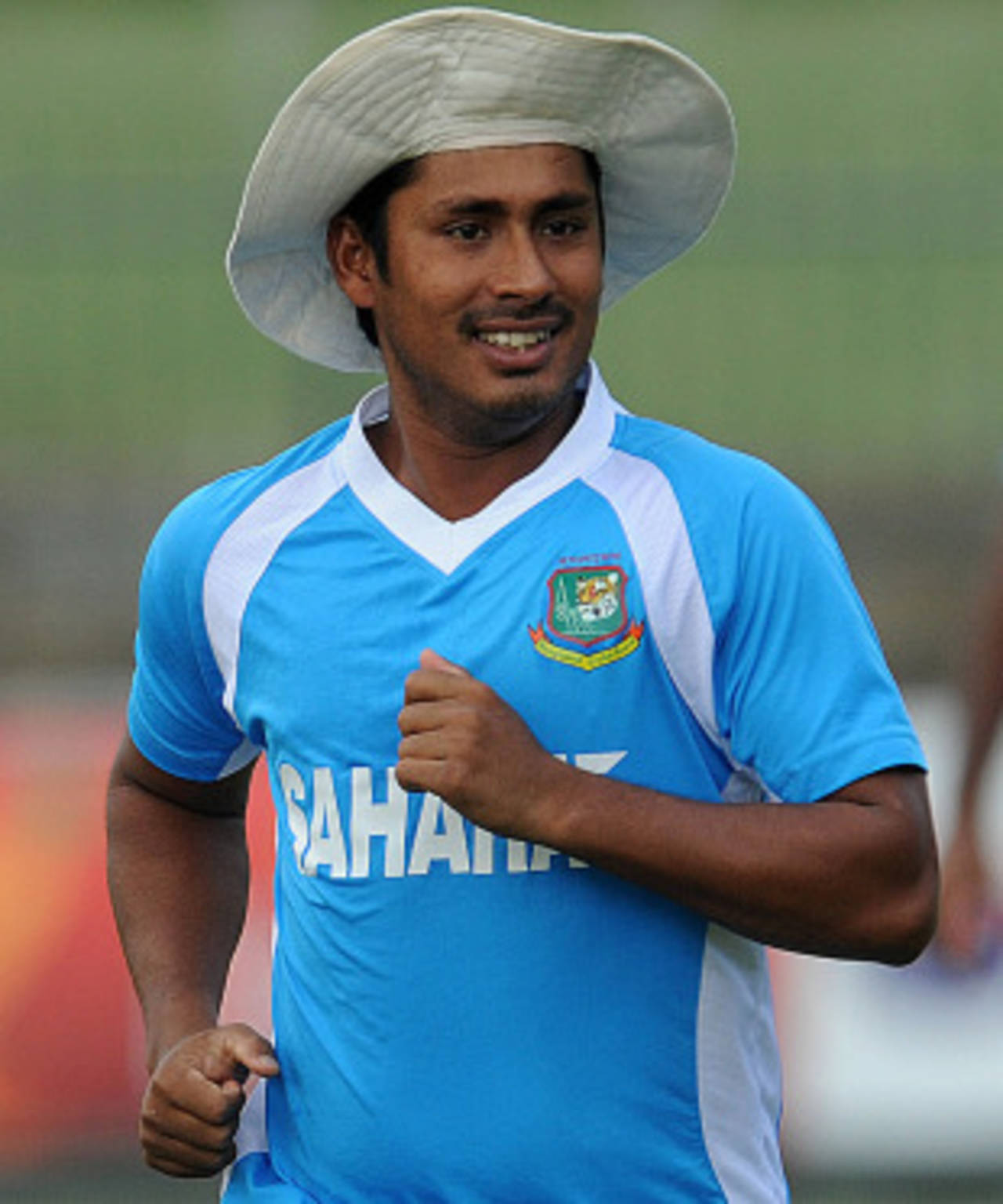The warning signs that BCB needs to deal with
Mohammad Ashraful's confession of his involvement in match-fixing and spot-fixing during this season's BPL has raised questions about the breach of disciplinary protocol put in place by the BCB
Mohammad Isam
06-Jun-2013

Did Mohammad Ashraful ignore the warning signs that have plagued the Bangladesh Premier League from its first season? • AFP
Mohammad Ashraful's confession of his involvement in match-fixing and spot-fixing during this season's Bangladesh Premier League (BPL) has brought some questions into the public domain, the most important one being the breach of disciplinary protocol put in place by the Bangladesh Cricket Board (BCB).
The BPL's problems began even before the tournament did. The domestic Twenty20 tournament was arranged hastily for the second year in a row, and had to deal with a last-minute player pull-out. While the ICC's Anti-Corruption and Security Unit (ACSU) were present from the start, the BPL governing council had too many issues to grapple with before they could focus on the tournament itself.
The ACSU was brought in by the BCB to protect the integrity of the tournament and to maintain the board's "zero-tolerance" goal of tackling fraud. It was an expensive service (nearly $200,000 for the entire duration of the tournament), but BCB's inadequate security measures inside stadiums meant that they had to bring in help from outside. ACSU officers were visible during BPL matches in Dhaka, Khulna and Chittagong, and they put in place rules that clearly spelt out the dos and don'ts.
The BCB introduced the ACSU to all the franchises before the tournament, and ensured there were enough educational programmes to help a player understand what was expected. During the tournament, there were several warnings from the BCB, significant enough for the players to take notice, regarding people gaining access to the dressing room or dugout. Owners were confined to an area near the dugouts at every venue - a measure the ACSU stressed upon, in spite of pressure to not interfere.
The contract with the ACSU also ensured that the standard security procedures of an international match were employed throughout the competition. Unauthorised persons were not permitted entry into the dressing room area, which was called the Players and Match Officials Area (PMOA). There were stringent checks put in place by the ACSU while issuing accreditation cards to those who were needed inside the dressing rooms. Mobile phones were also not allowed in the protected areas.
Even before the ACSU came in to the picture, however, there were many red flags. Just a day before the BPL was inaugurated in 2012, Mashrafe Mortaza exposed an offer to spot-fix, made by former Bangladesh cricketer, Shariful Haque who was later banned for life. The matter was immediately reported to the BCB and an inquiry was conducted. Towards the end of the tournament last year, a Pakistani individual, Sajid Khan, was arrested near the dressing room area, as he was trying to gain access. Chittagong Kings owner Sameer Quader Chowdhury later told the media that he had been approached by several people to throw matches.
Ashraful's exact role in this whole episode has not been revealed; the ICC's ACSU and the BCB have asked for a week before they make the details public. There are a few factors that could, however, possibly explain why players indulge in such activities. First, it is hard to tell whether a team is fixing a match or not. This leads to a second possible reason for players to feel at ease: lack of proper evidence.
These factors do not justify a player's involvement in corrupt practices, but they create unanswered questions about the BPL's image and integrity. If the BCB wants it to remain a viable tournament, it has to clean up its image, beginning with the punishment meted out to those involved in this issue. Then there are long-term issues that can be dealt with through accountability and shedding of egos.
BCB has a mixed track record in terms of enforcing discipline in such cases. After Mashrafe made the allegations, the board dealt with it swiftly and punished Shariful Haque, banning the latter for an indefinite period within seven months of the incident. The board also banned umpire Nadir Shah after an Indian channel's sting operation had him compromised. But the BCB could not deal with the Sajid Khan arrest in a proper manner. Their security officers handed him over to the local police, but they failed to follow up on the issue and the accused slipped away.
Before the BPL can reach the IPL's levels of popularity, in spite of recent controversies in the Indian tournament, it has to put in the missing building blocks. Some players haven't been paid their full amount, while others are waiting for half their dues. Many foreign players repeatedly complained about payment issues after the first edition, and have raised their voices again this year. Local players have had a tougher time - some of them haven't been paid since last year. The BPL governing council itself is supposed to be paid by Game On Sports (the event management firm that organises the event) and the franchises, against whom they are preparing to take legal action.
Ashraful could well have opened up a Pandora's box but his admission of guilt has again underlined the necessity of professionalism. Without it, such incidents are likely to repeat themselves.
Mohammad Isam is ESPNcricinfo's Bangladesh correspondent. He tweets here